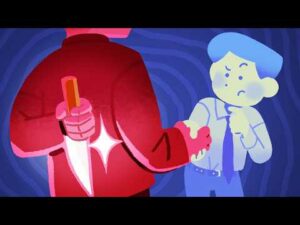Unlocking the Secrets of Blue Zones and Planet Aqua: How They Could Rewrite Your Purpose—and America’s Future
Ever wonder what it actually takes to live not just longer, but better—waking up every day with energy, purpose, and a mind as sharp as a tack? Well, Dan Buettner cracked this code years ago, diving headfirst into the lifestyles of the world’s healthiest, longest-lived people. Picture this: no crazy gym sessions or fad diets, but nine simple, powerful habits that naturally weave wellness into everyday life. They call this the Power 9—sounds almost too good, right? But what’s even more fascinating is how these secrets浮 exist in communities scattered across the globe, connected by a thread of vibrant living despite their differences. Sure, adopting these habits today might feel like swimming against the current, but hey, choosing the path to a longer, happier life? That’s a journey worth taking, no questions asked. Ready to challenge what you thought you knew about health and longevity? Let’s dive in. LEARN MORE

Dan Buettner is an educator, explorer, National Geographic Fellow, and author of numerous books including, The Blue Zones: Secrets for Living Longer—Lessons From the Healthiest Places on Earth.
“In the early 2000s I set out to reverse engineer longevity,” says Buettner. “Rather than searching for answers in a test tube or a petri dish, I looked for them among populations that have achieved what we want — long, healthy lives, and sharp brains until the end.”
After locating the world’s blue zones areas, Buettner and National Geographic took teams of scientists to each location to pinpoint lifestyle characteristics that might explain the unusual longevity. They found that though the blue zones communities are located in vastly different parts of the world, their residents share nine specific traits that lead to longer, healthier, happier lives. These traits are called the Power 9.

- Move Naturally — “The world’s longevity all-stars don’t pump iron, run marathons, or join gyms,” says Buettner. “Instead, they live in environments that constantly nudge them into moving without thinking about it.”
- Purpose — “People in the blue zones don’t wake up feeling rudderless. They’re interested in family, keeping their minds engaged. The Nicoyans called it plan de vida and the Okinawans called it Ikigai. For both, it translates to ‘why I wake up in the morning.’”
- Downshift — “Even people in the blue zones experience stress. But what the world’s longest-lived people have that we don’t are routines to shed that stress. Ikarians take a nap and Sardinians do happy hour. Costa Ricans have a knack for creating happy moments every day.”
- 80% Rule — “Eat until you’re 80% full. Unlike most Americans, who keep eating until their stomachs are full, traditional Okinawans stop as soon as they no longer feel hungry.”
- Plant Slant — “Until the late 20th century, the diets of every blue zone consisted almost entirely of minimally processed plant-based foods–mostly whole grains, greens, nuts, tubers, and beans.”
- Wine @ 5 — People in the blue zones (except Adventists) drink alcohol moderately and regularly. The trick, if you do drink, is to drink one to two glasses per day with friends and food.”
- Belong — “Healthy centenarians everywhere have faith. All but a handful of the centenarians we’ve interviewed belonged to a faith-based community. Denomination doesn’t seem to matter.”
- Loved Ones First — “Successful centenarians in the blue zones put their families first. This means keeping aging parents and grandparents nearby or in the home.”
- Right Tribe — “One of the most profound, measurable, and long-lasting things you can do to adopt a blue zones lifestyle is to build a social circle around yourself that supports healthy eating, activity, and emotional well-being.”
These are all worth exploring. Those that work for you, build into your life. Yet, it is not easy to live with these healthy practices in today’s world.
The Rise of Domination Systems Throughout the World
Social systems scientist Riane Eisler, one of the most original thinkers of our time, first wrote about the two contrasting systems in our world in her book, The Chalice & The Blade: Our History, Our Future:
“The first, which I call the dominator model, is what is popularly termed either patriarchy or matriarchy — the ranking of one half of humanity over the other. The second, in which social relations are primarily based on the principle of linking rather than ranking, may best be described as the partnership model.In this model — beginning with the most fundamental difference in our species, between male and female — diversity is not equated with either inferiority or superiority.”
In her most recent book written with anthropologist Douglas Fry, Nurturing Our Humanity: How Domination and Partnership Shape Our Brains, Lives, and Future, they say that for most of our two-million-year history humans have lived in balance with nature in true partnership. But in the last six thousand years 6,000 years (less than 1% of our history) domination systems have been on the rise.
Planet Aqua: Rethinking Our Home in the Universe
Like Riane Eisler, Jeremy Rifkin is a maverick social scientist who is changing the way we perceive our world. He is the author of 23 books including The Empathic Civilization, The Age of Resilience and most recently Planet Aqua: Rethinking Our Home in the Universe.
Rifkin says that when humans decided to attempt to tame the vast waters of our planet six-thousand years ago, it set in motion a time-bomb of destruction that is causing damage that puts our very existence at risk. Jane Goodall, Founder of the Jane Goodall Institute and UN Messenger of Peace, says,
“Planet Aqua will shock most people. Rifkin points out that instead of living on a land planet, we actually live on a water planet — fresh, salt, and frozen — and this changes all of our long-held beliefs. Now, climate change is rapidly disrupting the hydrosphere, taking us into a foreboding future of floods, droughts, heatwaves, wildfires, and hurricanes, pushing many species to extinction, including our own.”
Nature Bats Last: The Imminent Collapse of Hydraulic Civilization
“Our earliest ancestors were animists and conceived of the world around them as alive, vibrant, and brimming with spirits continually interacting in a boundaryless nature, of which our species’ agency was intimately intertwined,” says Jeremy Rifkin. “Six millennia ago along the Euphrates and Tigris Rivers in what is now Turkey and Iraq and, shortly thereafter, the Nile River in Egypt, the Ghaggar-Hakra and Indus rivers in the Indus Valley, the Yellow River in the Huang He Valley of China and later across the Roman Empire, our forebears began to harness the planetary waters for the exclusive use of our humanity. Now, in the grips of a warming planet, brought on in large part by a fossil fuel-driven water/energy/food nexus, the urban hydraulic civilization is collapsing in real time.”
Anthropologist Joseph Tainter studied numerous civilizations throughout history and recognized patterns of collapse which he described in his book The Collapse of Complex Societies. In The Fate of Empires and the Search for Survival, Sir John Glubb noted a similar pattern, that all “superpowers” from ancient Persia to the Roman and British Empires, collapsed after ten generations or approximately 250 years.
Thomas Berry was a “geologian” and a historian of religions. He spoke eloquently to our connection to the Earth and the consequences of our failure to remember we are one member in the community of life.
“We never knew enough. Nor were we sufficiently intimate with all our cousins in the great family of the earth. Nor could we listen to the various creatures of the earth, each telling its own story. The time has now come, however, when we will listen or we will die.”
Another visionary who has been sounding the alarm about the times in which we live is evolutionary scientist, Rebecca D. Costa. In her book, The Watchman’s Rattle: A Radical New Theory of Collapse, she says,
“The uneven rate of change between the slow evolution human biology and the rapid rate at which societies advance eventually causes progress to come to a standstill.”
She quotes her mentor world-renowned biologist E.O. Wilson, who has been called “the Darwin of the 21st Century.” According to Wilson,
“The real problem of humanity is that we have paleolithic emotions; medieval institutions; and god-like technology.”
In an article I wrote about Cost’s work, “We Can Handle the Truth,” I quoted her:
“From an evolutionary perspective, social progress moves fast, but our brains — the apparatus that must process all this new information — evolve over millions of years. So, while the world is changing in picoseconds, my brain is struggling to keep up.”
This is the underlying reason, she believes, that all complex civilizations eventually come to an end.
The Truth Can Set You Free: Who Do You Choose to Be?
I wrote about the collapse in numerous articles including, “How You Can Survive and Thrive as the Ship of Civilization Collapses.” In the article I introduced readers to another visionary leader, Margaret J. Wheately, who more than anyone I know tells the truth about what we face and guides us towards a better future.
“This is the Age of Threat,” says Wheatley, “when everything we encounter intensifies fear and anger. In survival mode, we flee from one another, abandon values that held us together, withdraw from ideas and practices that encouraged inclusion and created trust in leaders. And, most harmfully, we stop believing in one another.”
She recognized that what we are seeing in the U.S. today is following the same pattern of collapse after 250 years of domination that were recognized by other experts.
But there is a better way. As Jeremy Rifkin says,
“We must give up our belief that it is our duty to dominate and control nature and reconnect as partners in all life on Earth. We must rethink the waters as a ‘life source’ rather than another ‘resource’ to exploit and learn to adapt to the hydrosphere rather than trying to get the hydrosphere to adapt to us.”
We must find our tribe outside the confines of “civilization.” The captains of “Ship of Civilization” would have us believe that even if the Ship is sinking, we might as well go down with the ship because we are all doomed (except the captains who imagine they will survive and thrive as the rest of us go under). That is the big lie of civilization. As my vision showed me, there are millions of alternatives and more and more lifeboats in the water every day, but you won’t learn about them in the corporate-controlled media. You can learn more here.
Each of us must claim our own path of service. Only by joining with others who have the courage to face the truth and to become “warriors of the human spirit,” as Margaret Wheatly call us, can we work together to create “Islands of sanity.”
We must act now, or we will be swept away by the currents of change. Wheatley says,
“My aspiration is for you to see clearly so that you may act wisely. If we don’t know where we are, if we don’t know what to prepare for, then any path we choose will keep us wandering in the wilderness, increasingly desperate, increasingly lost.”
One positive action you can take now is to learn about a new course that Wheatley will be offering. Claiming Your Path of Service: Choosing to Serve This Age of Collapse and Possibility, developed with the extraordinary platform Advaya.life.”
You can also follow my own work and offerings at MenAlive.com. I look forward to hearing from you. If you have not yet subscribed to my free weekly newsletter you may do so here.















Post Comment